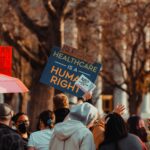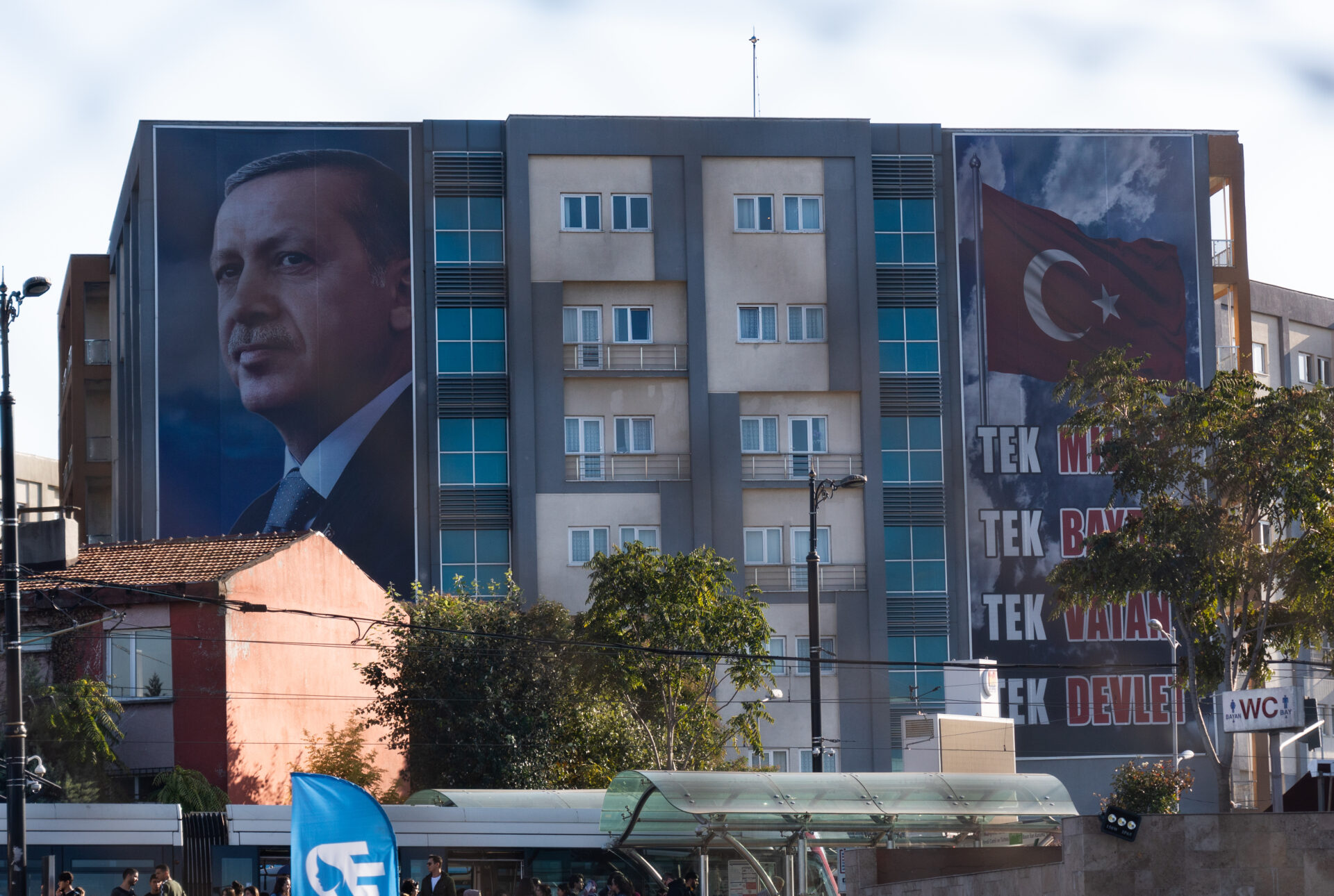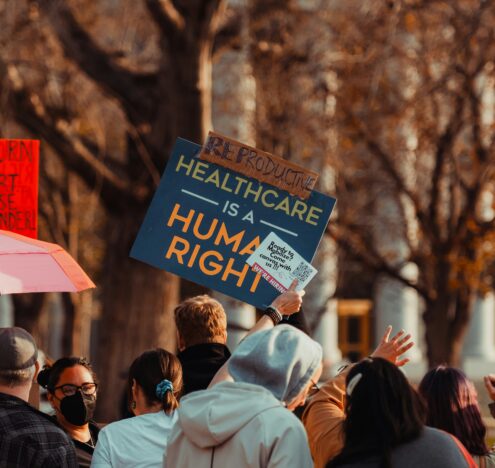On the warm Sunday of March 31, the streets around Recep Tayyip Erdoğan Stadium in Istanbul were unusually quiet. Political banners fluttered in the wind coming up the hill through Kasimpasa, the neighborhood the country’s president was born in. “Nobody cares, I think,” said Kubra, a woman in her late thirties, who asked to be identified by her first name only.
Turkey has been in an election mode for a decade with nearly each year offering a critical vote. Over the weekend, Turks once again went to the polls for nationwide municipal elections. In Istanbul, families ambled in and out of schools to cast their vote on a meter-long ballot. “Lines seemed much shorter this time,” Kubra explained.
Has voting in Turkey become another irrelevant national pastime?
Kubra voted for Ekrem İmamoğlu, the current mayor of Istanbul. His party, the Republican People’s Party (CHP), fell apart in the elections in 2023. “I think people supporting CHP feel disappointed,” she added.
Around 61 million citizens across the country, including more than a million first-time voters, were eligible to vote for metropolitan and district municipal mayors. Moreover, provincial and municipal councilors were elected, in addition to numerous local non-partisan positions such as muhtars, or neighborhood administrators, and elderly people’s councils. Turnout was roughly 76%, according to the state-run Anadolu Agency, compared to 87% in the 2023 presidential and parliamentary elections.
“Rising Authoritarianism”
Still, the person who might have cared the most was President Erdoğan, whose party suffered a major upset. Upon rewinning the 2023 elections, Erdoğan immediately told his voters to set their eyes on the municipal elections, with Istanbul the ultimate prize. “Istanbul Again” was the political slogan adopted by Erdoğan’s party, the Justice and Development Party (AKP). “Let Istanbul return to its rightful owners … You need to rescue this ancient city from the oppression of the CHP,” Erdoğan said at one of his pre-election rallies.
However, CHP defied odds and became the largest party in the municipal elections, with its mayors taking control of six of the country’s 10 biggest cities, including Istanbul, Ankara, Izmir, Bursa, and Antalya. In total, results show they won 35 out of 81 municipalities. In İmamoğlu’s election-night victory speech, he cast the victory in the widest terms possible: “Istanbul stands as a beacon of hope, a testament to the resilience of democratic values in the face of rising authoritarianism.”
With more than half the globe heading to the polls this year, the victory had far-reaching resonance.
The city, which represents a quarter of the Turkish population and nearly half of Turkey’s GDP, is the hometown of Erdoğan, who rose to prominence as Istanbul’s mayor in the 1990s before later going on to win the premiership and the presidency. Even as the country’s president, Erdoğan has been said to still identify as Istanbul’s mayor.
But by evening, Erdoğan had lost Beyoglu, the Istanbul district he was born in and which originally brought him to power. In total, CHP was able to expand the number of Istanbul districts under its control from 11 to 25 out of a total of 39.
“Harsh Warning”
İmamoğlu had previously caught Erdoğan off guard back in the 2019 municipal elections, and after an embarrassing defeat in 2023, many viewed the latest elections as the opposition’s last chance to loosen Erdoğan’s grip. Although AKP apparently outspent CHP by at least three to one to try to retake the city, İmamoğlu caught the president by surprise again. Now, emboldened by down ballot victories, he will have the opportunity to prove he can govern.
Erdoğan appeared to have mistakenly tried to position himself as the face of efforts to retake Istanbul. He selected the mousy Murat Kurum, a former environment minister born and raised in Ankara, to challenge the charismatic İmamoğlu. In an effort to highlight his technocratic chops, campaign posters featured Kurum wearing a hardhat. But with or without hat, voters saw a janus-faced proxy for a leader who has dragged Turkey into economic and political crisis.
“Eight million AKP voters sent a very harsh warning to Erdoğan by not going to the polls,” said Ozer Sencar, the director of Metropoll, a political polling firm. This does not mean that they have completely abandoned the party, but this will make it difficult to keep the state coalition intact.
Eight million AKP voters sent a very harsh warning to Erdoğan by not going to the polls.
– Ozer Sencar
Still, voter apathy was a non-partisan issue in the election. For AKP supporters, despite previous election victories, they saw little change to managing economic crisis or natural disasters.
According to polls, 65% of Turks are more concerned with the state of the economy. The country’s inflation rate increased to 67.07% in February from 64.86% in January 2024. A widespread feeling persists that the government failed to respond to earthquakes that killed more than 50,000 people across southern Turkey in February 2023.
“A Big Deal”
Apart from those who stayed at home, other AKP supporters voted for other parties, including the New Welfare party, an offshoot of an earlier Islamist party that Erdoğan was originally a member of. They took a more hardline stance than Erdoğan against Israel over the Gaza conflict. The results were also not a good sign for nationalist or far-right parties. For CHP, lack of interest stemmed from repeated failures at the polls, particularly in the national elections last summer. But this time they have something to celebrate.
“It’s a big deal,” Seda Demiralp, a professor of political science at Isik University said. The CHP have not had such a win since 1977. “Especially in becoming so strong in Istanbul.”
Revenue from land there is an important source of welfare and patronage for the city’s residents, which also has important implications for national politics. The party can leverage these networks while simultaneously weakening AKP’s own abilities in redistribution, which will ultimately affect Erodgan’s popularity. The mayors of the biggest cities will be able to raise their profiles through brandishing these large city budgets and shape policy ahead of the next presidential elections, expected in 2028.
“It wasn’t enough for the 2023 [presidential] elections,” Demiralp said, but another term may hamstring AKP enough for one of the country’s big opposition mayors to make a run for the presidency. “All of … Turkey will be watching.”





















